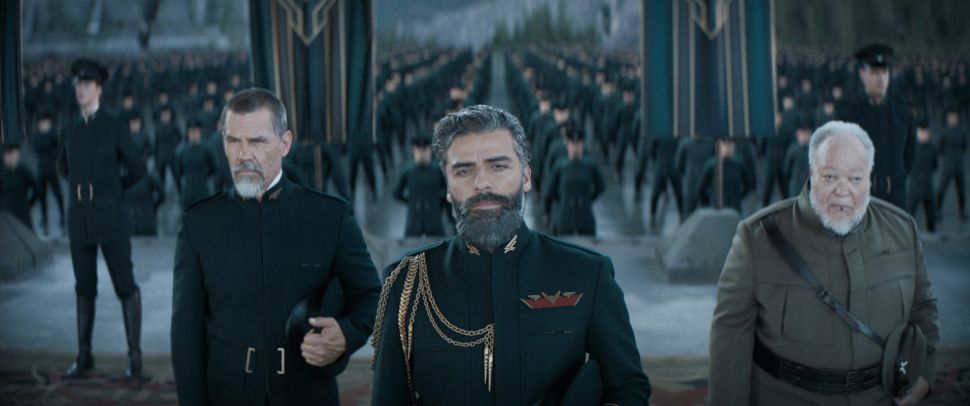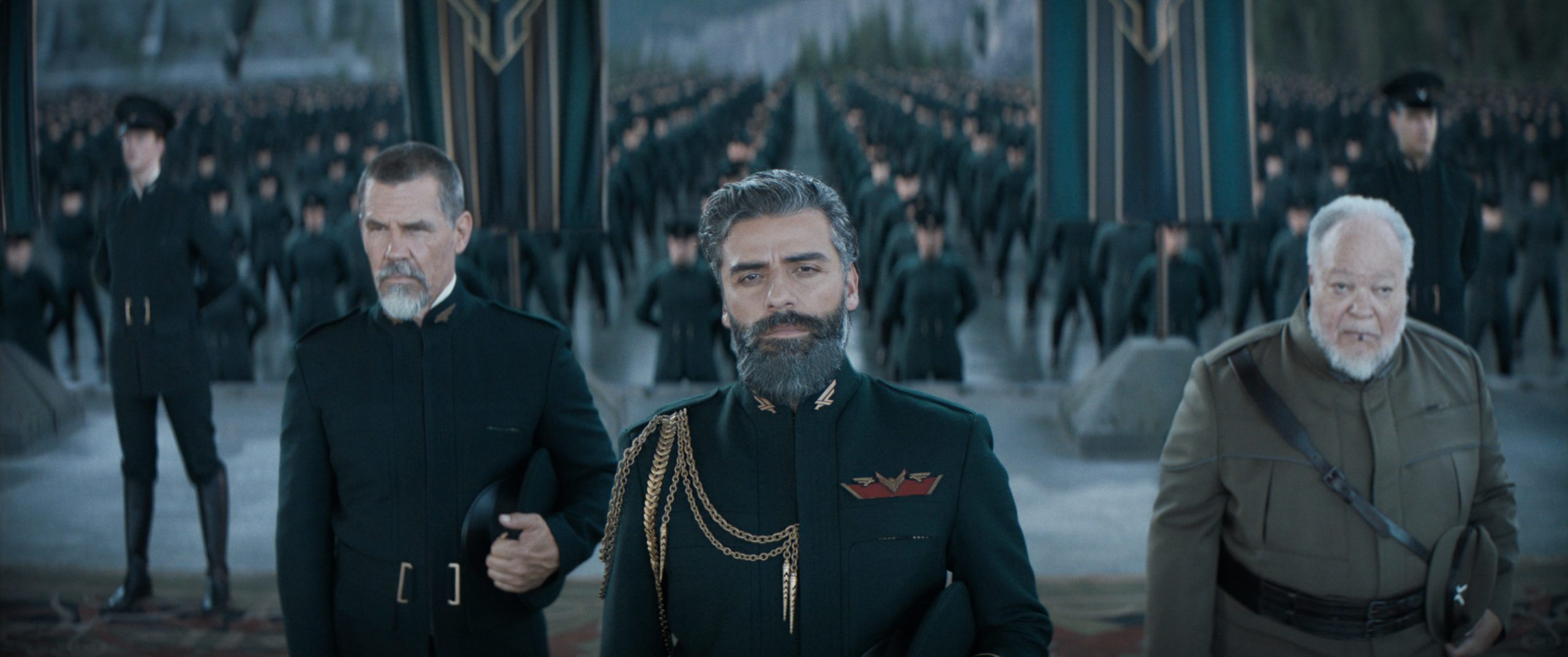The strangest detail about Denis Villeneuve’s Dune—or Dune: Portion 1, as it’s titled on screen—is not anything that occurs in the story, or that it took Hollywood so very long to re-adapt Frank Herbet’s 1965 novel soon after the 1984 movie by David Lynch. Instead, it’s that a new do the job based only on a single supply can get there amidst a sea of sequels and shared universes and however experience like it has its tendrils in so many other texts. Dune is great in scale, and that enormity is matched by its evocations of a huge and winding heritage of the Center East—which is to say, the Middle East that has existed in the Western consciousness for a long time, across publications, films, movie games and other media, all of which have cross-pollinated to create a nebulous identification. The movie alone is generally high-quality, with breathtaking visuals damaged up by a a lot less captivating story that usually drags its toes (regardless of a number of great performances). But its area in just Western traditions—both serious and imagined—is odd, unsavory, and fascinating.
Just one of the unusual Hollywood films where the story starts even in advance of the studio logos, Dune kicks off with a harsh and mysterious whisper about desires, in advance of the Warner Bros. h2o tower slides across the screen. An odd introduction, nevertheless a person that frames not only the story as a dream of sorts, but maybe even the film’s earning, as a studio products created, formulated, budgeted (etcetera) with closed eyes, and heads loaded with fantasies about Star Wars, Lawrence of Arabia and Herbet’s novel, side by side with recollections of mid-2000s American news broadcasts. These are all unique entities which share comparable aesthetic hallmarks vis-à -vis “the Muslim world,†with different degrees of verisimilitude. Villeneuve’s film collapses this history—of Western media’s perspective on the Center East—whether or not it indicates to.
|
Dune ★★1/2 |
The film’s sprawling plot factors are founded with extra clarity and far more panache than in Lynch’s version—action and dialogue stand in for dense exposition, although seeds are planted a lot more thoroughly along the way, through character interactions. It wastes small time setting up who’s who, from the militaristic House Atreides—Duke Leto (Oscar Isaac), their firm but kindly chief, his adore Lady Jessica (Rebecca Ferguson), a member of a solution matronly get, and their son Paul (Timothée Chalamet), a prince who queries for goal and appears to dream of the future—to the desert planet Arrakis, in which most of the motion unfolds. Also known as “Dune,†the world is littered with large sand worms, populated by Bedouin-coded locals referred to as the Fremen, and mined by colonial forces for a spice, “melange,†that’s portion drug, component intergalactic gas. The specifics are largely unimportant, outside of understanding that an unseen Emperor has granted Household Atreides the proper to mine melange, consequently changing the gloomy Dwelling Harkonnen, led by a cartoonishly rotund Baron named Vladimir (Stellan Skarsgård in an ethereal fatsuit).
The names and concepts day again to Herbert’s books, which have been inspired by accounts of mid-19th century wars amongst Imperial Russia and Muslim tribes in the Caucasus, but above time, Arrakis has stood in for what ever conflict the Western planet has wrought on “the desertâ€â€”call it prescient, or merely knowledgeable of the stream of historical past. The 1984 film, for instance, was a great match for the era’s Afghanistan conflict between American and Soviet forces. In the new version, the small Fremen character Chani (Zendaya) hints at this dynamic in her opening voiceover. As she points out the new record of her world, and the handover of electricity from the Harkonnens, she wonders not about liberty, but about which colonial powers will rule them up coming.
In this vein, Dune: Part One particular is mapped onto the article-9/11 “forever wars.†Minor in the plot requirements to transform for this to come about but some of the patterns are tweaked specially for this parallel, like the interiors of the bug-like helicopters, which intently resemble modern-day U.S. navy machines. Atreides’ weapons grasp Gurney Halleck feels plucked out of a present day Hollywood war film, amongst his gung-ho bloodlust and the tough presence of Josh Brolin, who Villeneuve earlier forged as a CIA operative in 2015’s Sicario. The basic perspective of Home Atreides toward the Fremen is one of othership and disdain, except if of program somebody like Duke Leto wishes to harness their strategic electricity.
It is an clear and not completely awful strategy to critiquing American militarism, but it shortly breaks down in amusing trend, when the father-son duo is exposed to have been coaxed into colonizing Arrakis, summoning forth the pervasive lie about the Bush administration currently being fooled into invading Iraq. Is it a stretch to attract this kind of a comparison? Of course, and no. On just one hand, the plot of Dune existed for almost 40 decades prior to the aforementioned situations. On the other, this kind of volatile issue subject is never significantly from the production’s brain, and the film is, by its incredibly character, aspect of a more substantial heritage wherein pictures and tales about the Center East are contorted, not only as a indicates to comment on the location, but to reaffirm the West’s conception of by itself.
The blue-eyed, golden-haired Luke Skywalker was after a sufferer of the ruthless “Sand Men and women,†monsters draped in Bedouin garb, and his heroism was partly established in contrast to their villainy. These optics exist all across western sci-fi, and though Dune: Part Two may finally subvert them, Portion 1 performs like an unapologetic fixture of that legacy. Lawrence of Arabia served as a partial inspiration for Herbet, so the tale of T.E. Lawrence—a authentic man or woman with actual experiences—becomes watered down and takes the form of Paul Atreides, who likewise wears desert garments with the culturally proper in good shape, presaging his entrance into Fremen society as their Western savior. However, as opposed to Lawrence, who travelled and examined thoroughly, Paul’s familiarity with Fremen customs is despite him getting invested no time at all with the locals, who aspect only briefly in the movie, and are a mainly homogenous bunch, whose faces are obscured driving their keffiyeh. Most of what we find out about them in Aspect One is their beat rituals, and their prophecy that paves the way for the heroic ascendancy of the clairvoyant Paul, like a white Prophet Muhammad listening to the term of God.Â
Probably the existence of much more Center Eastern actors may possibly have helped balance some of this iffy-ness, but Hollywood has designed few Center Jap stars inspite of building the region a regular location for the previous 20 several years, so it has a constructed-in justification. Other than, Dune (a great deal like Aladdin) is not just the sort of story that can be decoupled from its permeating orientalism, without having which it would hardly exist. Nonetheless, although the characters and dialogue usually circle this unpleasant dynamic, the movie is truly at its most thematically powerful when cinema’s otherwise most practical tools—people’s faces and their words—are removed fully. Dune is spellbinding when it captures architecture formed by indirect light-weight, modern ships gliding throughout an unforgiving desert, and monumental industrial devices extracting pure assets from beneath the sand. At 155 minutes in duration, the film has a good deal of home for such scenes, wherever personal characters are no more time the target, and the terrain tells its own story.Â
These images echo, much more right and a lot more powerfully, the central conceit of colonial forces sucking a culture dry. Villeneuve and cinematographer Greig Fraser talk volumes with the way they portray scale, with human beings and their airships staying dwarfed by these extraction products, and the products in transform looking minuscule and insignificant when the desert (by means of those gigantic sand worms) sooner or later strikes back again and returns things to their pure get.Â
If there’s a lower of Dune: Aspect Just one which is all developing and broad shots, it would possibly participate in like a sci-fi remix of documentaries by Ron Fricke or Godfrey Reggio. It would also avoid silliness like composer Hans Zimmer—whose percussions are unquestionably propulsive—accompanying each 3rd shut up of Paul with vocals bordering ululating. Or the sloppiness of coding Home Atreides as a Western army power while dressing their girls in vaguely Center Eastern dresses. Or the disappointment of cautiously choreographed hand-to-hand fights lacking any serious fat or impression (Jason Momoa’s vitality notwithstanding, as Paul’s fantastically named mentor Duncan Idaho).
Virtually each tangible fixture pales in comparison to the film’s haunting ambiance, from the way its inside and exterior areas envelope the senses, to the way its premonitions build a haunting tapestry of photos and strategies. These visions never pretty do the job when they portray whole scenes, which have little bearing on this 50 percent of the tale, but when Paul straddles the line of consciousness, these times come to be fleeting and ethereal, as they portray impressionistic hints of people today and events—or even layout elements, like desert sandals or scarves twisting in the wind, transient pictures which strip the film’s exoticism of displeasurable context, and briefly renovate it into a little something dreamlike and inviting. That is, until the two-component saga’s uncomfortable and tensionless midpoint jolts you awake.
Observer Critiques are common assessments of new and noteworthy cinema.

